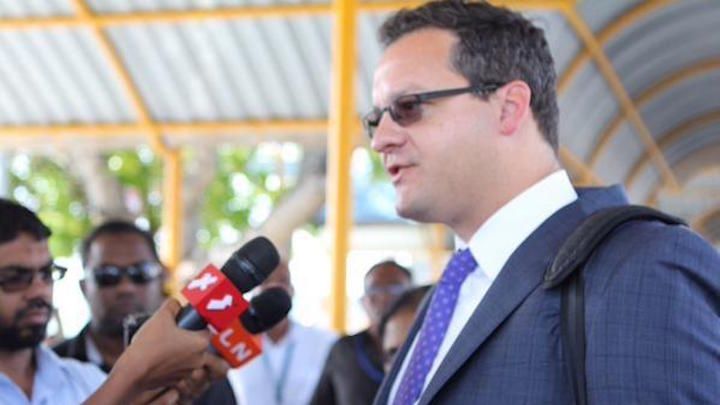Ten Questions for the Government of the Maldives
While it is unsurprising that the Government of the Maldives wishes to have a fact-free conversation about the rapidly deteriorating human-rights situation in the country, the international community will not be persuaded by mere repetition of the same claims lacking foundation in law or evidence, writes Jared Genser, legal counsel to former president Nasheed

17 Oct 2015, 09:00
By Jared Genser
It has been very interesting to observe how the Government of the Maldives has responded to its defeat at the UN Working Group on Arbitrary Detention. A close review of Toby Cadman’s recent oped in the Maldives Independent, “The UN Working Group Opinion: Next Steps,” is a case in point and deserves closer scrutiny. Here are our ten questions for the Government of the Maldives, based on what he wrote, which is in italics.
A number of international personalities have attempted to tarnish the image of the Indian Ocean nation by criticizing the trial of former President Mohamed Nasheed, who was convicted of having ordered the abduction of judge Abdulla Mohamed, a sitting criminal court judge.
This is a dramatic understatement. It isn’t merely that some “international personalities” have criticized the Government. These people and organizations include the UN Secretary-General, UN High Commissioner for Human Rights, US Secretary of State John Kerry, UK Prime Minister David Cameron, the European Parliament (in a unanimous resolution urging his immediate release), Amnesty International, Asian Human Rights Commission, International Commission of Jurists, and Bar Human Rights Committee of England and Wales, among others.
Become a member
Get full access to our archive and personalise your experience.
Already a member?
Discussion
No comments yet. Be the first to share your thoughts!
No comments yet. Be the first to join the conversation!
Join the Conversation
Sign in to share your thoughts under an alias and take part in the discussion. Independent journalism thrives on open, respectful debate — your voice matters.




